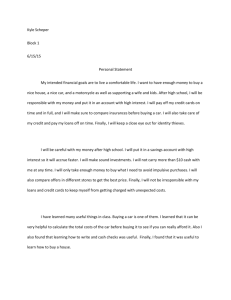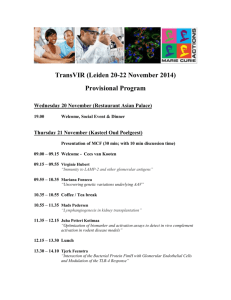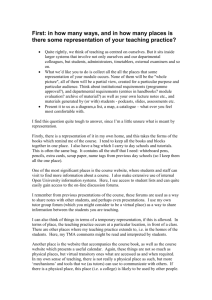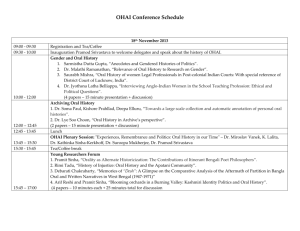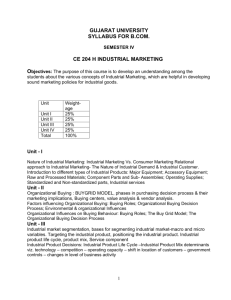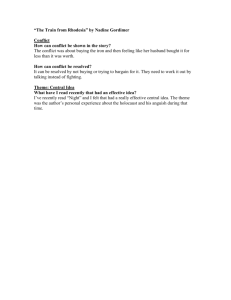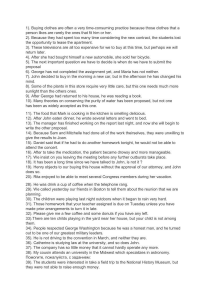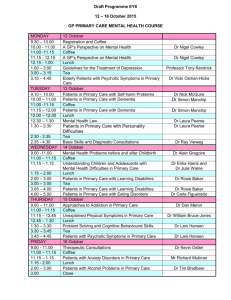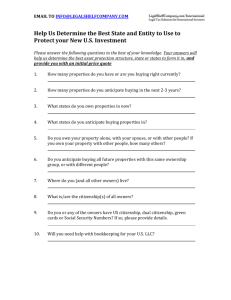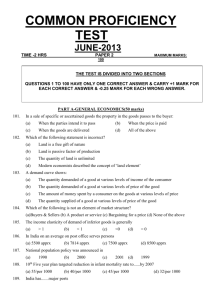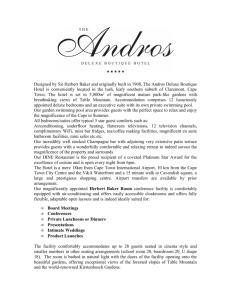Answers Exam 3
advertisement
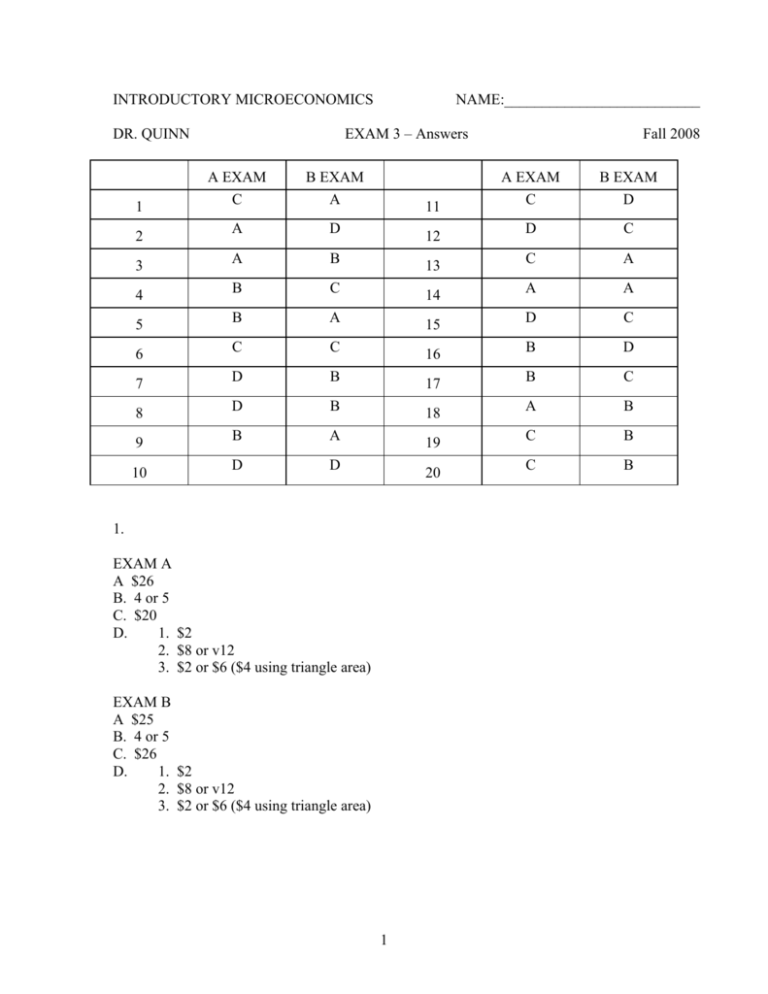
INTRODUCTORY MICROECONOMICS DR. QUINN NAME:__________________________ EXAM 3 – Answers 1 A EXAM C B EXAM A 2 A 3 Fall 2008 11 A EXAM C B EXAM D D 12 D C A B 13 C A 4 B C 14 A A 5 B A 15 D C 6 C C 16 B D 7 D B 17 B C 8 D B 18 A B 9 B A 19 C B 10 D D 20 C B 1. EXAM A A $26 B. 4 or 5 C. $20 D. 1. $2 2. $8 or v12 3. $2 or $6 ($4 using triangle area) EXAM B A $25 B. 4 or 5 C. $26 D. 1. $2 2. $8 or v12 3. $2 or $6 ($4 using triangle area) 1 2. EXAM A $ S S’ D’ D Q B. Down. Price will go down because both the shift out in supply and the shift in of demand create excess supply at the old price. C. Unclear. The shift back in demand means that the falling price moves along the demand curve causing quantity demanded to increase. The shift out in supply means that the falling price moves in along the supply curve causing the quantity supplied to decrease. Whether the new equilibrium quantity is greater or less than the old depends on which effect is larger. 2 2. EXAM B $ D’ S’ S D Q B. UP. Price will go up because both the shift in of supply and the shift out of demand create excess demand at the old price. C. Unclear. The shift back in supply means that the rising price moves along the supply curve causing quantity supplied to increase. The shift out in demand means that the rising price moves in along the demand curve causing the quantity demanded to decrease. Whether the new equilibrium quantity is greater or less than the old depends on which effect is larger. 3. EXAM A. A. Coffee. Because the steeper curves mean that the same tax rate will produce more revenue because fewer people will stop buying/selling coffee than would stop buying/selling tea. B. Coffee. Fewer people who stop buying/selling means less dead weight loss. EXAM B. A. Tea. Because the steeper curves mean that the same tax rate will produce more revenue because fewer people will stop buying/selling tea than would stop buying/selling coffee. B. Tea. Fewer people who stop buying/selling means less dead weight loss. 3
